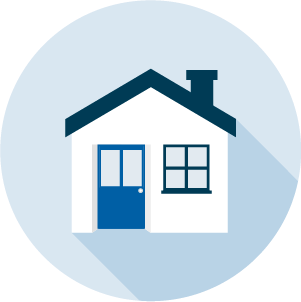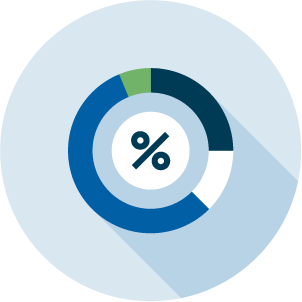A Non-QM loan is a mortgage that doesn't meet the standards set by the Consumer Financial Protection Bureau (CFPB) for Qualified Mortgages. These loans offer more flexibility in qualifying criteria, making them suitable for borrowers with unique financial situations.

Non-QM
Mortgage Loan
Flexible Loans for Unique Financial Situations
Non-QM (Non-Qualified Mortgage) loans are designed for borrowers with unique financial needs that don't fit traditional mortgage requirements. These loans offer flexibility in income verification, credit scoring, and property types, making homeownership accessible to a wider range of borrowers, including self-employed individuals, real estate investors, and those with recent credit events.

Key Benefits
Flexible Income Verification
Use bank statements or asset depletion instead of traditional W-2s.
Higher DTI Allowed
May allow debt-to-income ratios above the typical 43% threshold.
Alternative Credit Scoring
May consider non-traditional credit history for qualification.
Diverse Loan Options
Includes interest-only options and loans for non-warrantable condominiums.
Non-QM Loan Information
Non-QM loans offer alternatives for borrowers who don't fit traditional mortgage criteria. While they provide more flexibility, they may come with higher interest rates and down payments. To understand if a Non-QM loan is right for you, speak to one of our experienced mortgage experts.
Who Should Consider a Non-QM Loan?
- Self-employed borrowers with complex tax returns
- Real estate investors with multiple properties
- High-net-worth individuals with substantial assets but low taxable income
- Recent career changers to commission-based jobs or self-employment
- Foreign nationals looking to buy U.S. real estate
- Borrowers with recent credit events like foreclosure or bankruptcy
Types of Non-QM Loans
- Bank Statement Loans
- Asset Depletion Loans
- Interest-Only Loans
- Jumbo Loans
- DSCR (Debt Service Coverage Ratio) Loans
- Foreign National Loans
Qualifying for a Non-QM Loan
While more flexible, Non-QM loans still have requirements. These may include a minimum credit score, higher down payments (typically 10-20%), sufficient assets, and proof of ability to repay. Specific requirements vary by loan type and lender.
Pros and Cons of Non-QM Loans
Understanding the advantages and disadvantages of Non-QM loans can help you make an informed decision about your mortgage options.
Pros
- More flexible qualification standards
- Options for self-employed and non-traditional borrowers
- Possibility of larger loan amounts
- May consider alternative income sources
Cons
- Generally higher interest rates than QM loans
- May require higher down payments
- Potentially subject to prepayment penalties
- Possibly more complex application process
Non-QM Loan FAQs
Everything you need to know about Non-QM Loans
What is a Non-QM loan?
Are Non-QM loans risky?
While Non-QM loans are not inherently risky, they may carry higher interest rates and require larger down payments. They're designed for borrowers who can afford the loan but don't meet traditional mortgage criteria. As with any financial product, it's important to understand the terms and ensure you can meet the repayment obligations.
What types of Non-QM loans does Total Mortgage offer?
Total Mortgage offers various Non-QM loan options, including:
- Bank Statement Loans
- Asset Depletion Loans
- Interest-Only Loans
- Jumbo Loans
- DSCR (Debt Service Coverage Ratio) Loans
- Foreign National Loans
How do I know if a Non-QM loan is right for me?
A Non-QM loan might be suitable if you:
- Are self-employed with complex income documentation
- Have a high net worth but low taxable income
- Are a real estate investor with multiple properties
- Have recently changed to a commission-based job
- Are a foreign national looking to buy U.S. property
- Have had a recent credit event like bankruptcy or foreclosure
What are the qualification requirements for a Non-QM loan?
Qualification requirements for Non-QM loans can vary based on the specific loan type and lender. Generally, you may need:
- A credit score of 620 or higher (though this can vary)
- A down payment of 10-20% (depending on the loan type)
- Sufficient assets to cover the down payment and reserves
- Proof of income or ability to repay (which can be demonstrated through various means)

Explore your homeownership options with a Non-QM Loan.






